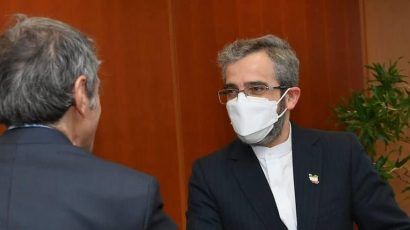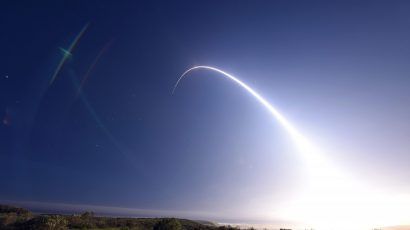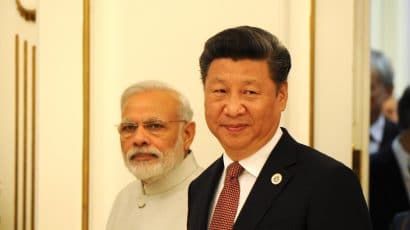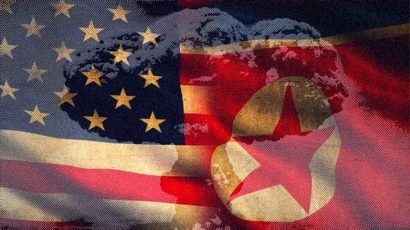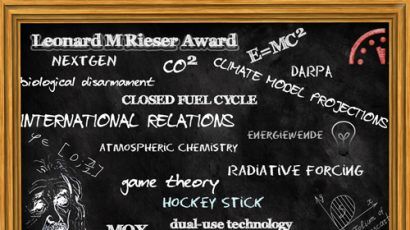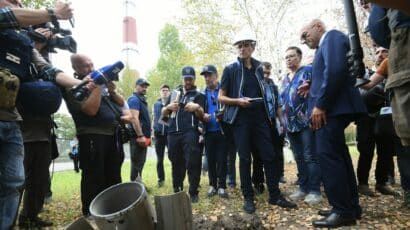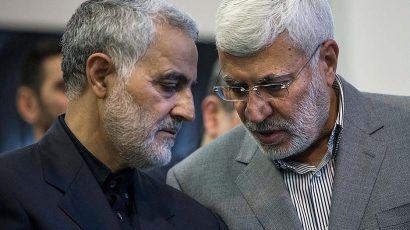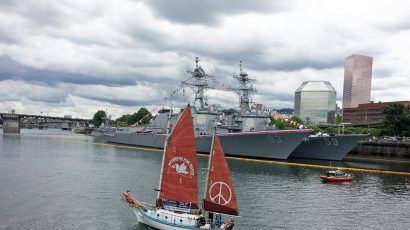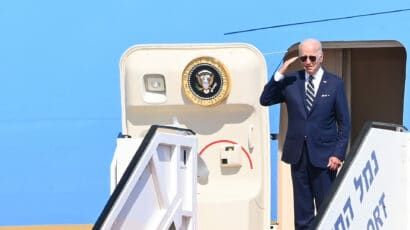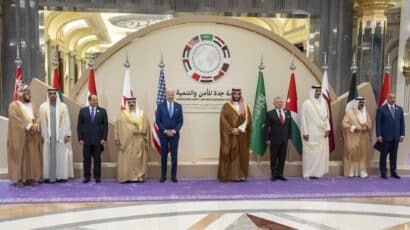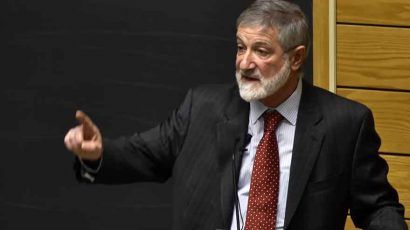Search results for nuclear terrorism
Although Israel's September 2007 raid on what it believed to be the Al Kibar nuclear site in Syria has often been compared to its 1981 raid on the Osirak nuclear reactor in Iraq, the aura of secrecy surrounding the Syria raid stands in stark contrast to the extensive public explanations offered by Israel 27 years ago. Further details about the Syria raid have recently been provided, but they didn't come from Israel. Instead, senior U.S. intelligence officials presented them to Congress and the International Atomic Energy Agency (IAEA) in late April--nearly eight months after the raid.
Two steps to revive—and sustain—the Iran nuclear deal
Iran and the world powers met last week in Vienna in the hope of reviving the nuclear deal. But revival is only a first step. What’s needed is a plan for the nuclear deal to endure. Here are two clear (if not simple) steps for reviving—and sustaining—the Iran nuclear deal.
Why is America getting a new $100 billion nuclear weapon?
The reasons for the United States new intercontinental ballistic missile—the ground-based strategic deterrent, or GBSD—are historical, political, and to a significant extent economic. Many people in the states where the new missile will be built and based see it as an economic lifeline. Their elected officials take campaign donations from defense companies, to be sure, but are also trying to deliver jobs in a political environment that has been hostile to government spending on anything but defense.
India–China border dispute: the curious incident of a nuclear dog that didn’t bark
The nuclear dimension of the recent border clashes was conspicuous by its invisibility. Can the rest of the world learn from it?
Breaking the vicious cycle of the US-North Korea nuclear standoff
Sanctions alone will not solve the North Korean nuclear problem.
Game changers: How the next generation can tackle the nuclear weapons problem
Millennials will inherit Cold War arsenals, but they don’t have to be stuck with old ways of thinking about what to do with nuclear weapons.
Los misiles: la fuerza oculta detrás de la proliferación nuclear
En enero, Corea del Norte llevó a cabo su cuarto ensayo nuclear, al detonar su «primera bomba de hidrógeno», o al menos eso es lo que afirmó Pyongyang. Desde entonces, el Norte ha efectuado varias pruebas de misiles, comprendiendo la última, el 22 de junio, el lanzamiento a gran altura de un misil balístico de … Continued
The narrow field of options for safely managing Ukraine’s Zaporizhzhia Nuclear Power Plant
Russian and Ukrainian officials making decisions about the Zaporizhzhia Nuclear Power Plant are challenged by a complex safety and security profile. No single reactor-management option will address all hazards as long as the war continues.
Facebook removes pro-Soleimani Instagram content, calling it support for terrorism. Laurence Tribe says FB has it wrong
Facebook says it is taking down Instagram posts supportive of Iranian Maj. Gen. Qassem Soleimani in order to comply with US sanctions on Iran. Some experts think the company is misinterpreting legal precedent.
What does the Tehran-Riyadh split mean for the Iranian nuclear deal?
A new rift between Saudi Arabia and Iran has deep roots and could empower hardliners who want to see a historic agreement derailed
The peace boat Golden Rule sails into a new era of nuclear activism
A piece of history is sailing around the Pacific Northwest to raise awareness of nuclear weapons. But the very idea of peace is history to many Americans.
Less threats, more focus: What Biden needs to do to win an Iran nuclear deal
Three policy recommendations to advance talks on the nuclear deal and ensure Iran never acquires a nuclear weapon.
The private sector plays an important role in delaying the development of the Iranian nuclear program
The writers in this symposium appear to share the view that the Iranians, if they so choose, have the capability to develop their nuclear program to the point of constructing a nuclear device. This may not be the case. UN and other sanctions are intended to force the Iranian government to change policies and to … Continued
South Asia is not the most dangerous place on Earth
While the nuclear situation between India and Pakistan is not good, it's been over-dramatized as near-inevitable here in the West, says a noted physicist from the region.
Gimme shelter: The need for a contemporary civil defense program
Of the 15 terrorism and natural disaster scenarios used by the Department of Homeland Security for planning purposes, the first scenario is the most feared: Terrorists detonate a 10-kiloton improvised nuclear device at ground level in the National Mall in Washington at 10 a.m. on a weekday morning.
Why a WMD-free zone in the Middle East is more needed than ever
A growing interest in nuclear technology in the Middle East—combined with ambiguity over nuclear activities in Iran and Israel—raises concerns about potential proliferation in the region.
He helped found two groups that won the Nobel Peace Prize: Ira Helfand of PSR
His message is simple: Nuclear weapons are not a force of nature, and they are not an act of god. We have built these with our own hands, and we know how to take them apart.
Implementing the Iran deal: Will banks do business?
Implementation of the Iran nuclear deal is only months away, yet a key incentive for Tehran could be missing: International banks and insurance providers are still reluctant to do business in the Islamic Republic.
The need for an Arab presence in international negotiations with Iran
Since 2002, the Iranian nuclear program has been a major threat to stability and security in the Middle East. To curb it, many countries and international bodies have engaged Tehran diplomatically. The European Union (EU) has shown unity and solidarity in dealing with Iran. Russia, the largest supplier of nuclear technology to Tehran, is also involved in the negotiations. Another active party is China, which has a strong economic relationship with Iran.

